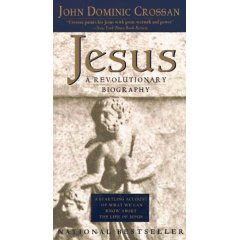
Gerry Bates reviews "The Pauline Conspiracy" by Peter Burton
The history of Christianity is irretrievably myth-ridden. Little is known about Jesus as a historical figure. The early Christians had as little scruples as later Stalinists about inventing things they thought would serve their cause. Surmises, more or less plausible, can be made, but only surmises. Karl Kautsky and others surmised that the myth-cocooned biblical Jesus might in reality have been a Jewish nationalist rebel against the Romans.
One aspect of the myth-making out of which early Christianity emerged was a savage demonisation of the Jews by the Christians who had evolved away from Judaism. Kautsky showed that the account of the trial of Jesus could not, on what is known about Roman courts and court proceedings (and a great deal is known) have been what it is in the Bible story – the death of Jesus is “pinned” on the Jews. The Roman governor, Pontius Pilate, washes his hands, saying “I am innocent of the blood of this just man.”
The demonisation of the Jews entered into the ideological fabric of Christian society over a period of 2000 years, inciting and licensing the persecution, robbery and murder of Jews.
In the question and answer “catechism”, Catholic children from the age of four were taught to memorise the question, “who killed Jesus Christ?” and the answer, “Pontius Pilate the Roman Governor did it, at the desire of the Jews.” The Catholic Church only recently abandoned that assertion.
Peter Burton’s play The Pauline Conspiracy attacks the myths of orthodox “Pauline” Christianity — after St Paul, the real founder of Christianity — by telling his own fictitious tale of the origins of Christianity. Here Jesus is a religious-nationalist preacher, a revolutionary far from the traditional meek, non-political mystic. The “Kingdom of Heaven” he seeks is in this world, not another after death.
Judas, the Arch-traitor in the Bible, is here a revolutionary crucified at the beginning of the play.
Pontius Pilate is a colonial governor condemning Jesus, a rebel.
Mary Magdalene, a black woman, is Jesus’ wife.
Saul, the future St Paul plots to separate Christians from Jesus by abandoning such practices as circumcision; and to “tame” the teachings of the nationalist Jewish zealot Jesus by turning his quest for liberty from a thing of this world into something to be sought in an imaginary after-life. Paul’s conversion is only a pretence.
Peter Burton makes a parable for the left out of the way historical Christianity, by way of the “Pauline conspiracy”, is diluted, perverted and substituted for the “real” one: so too was the socialist movement corrupted, diluted, turned from its original goal.
His “true story” is, of course fiction too. It is an old secularist gambit to claim that Jesus was “really” a good philosopher. In the secularist hall that still stands in Leicester, busts of philosophers such as Socrates are attached to the walls around the door, and among them is… Jesus. Hard nosed Marxists responded to this sort of attempt to “annex” — and inevitably glorify — Jesus by pointing out that the only Jesus we know, the figure in the Bible, did not even condemn slavery.
All-in-all Peter Burton makes a game attempt to depict the way in which rebels, once they are safely dead are, (in Lenin’s words in State and Revolution), turned into harmless iconic figures as comfort, not revolutionary guides, for the exploited and oppressed.





